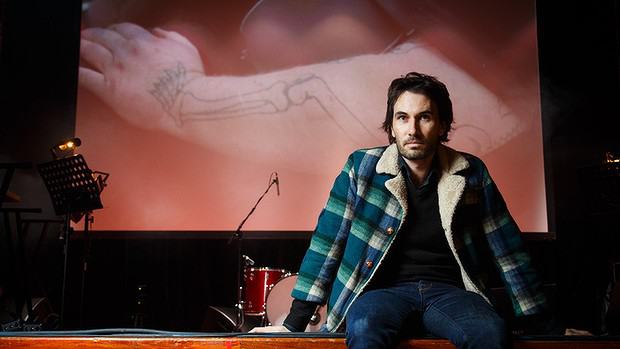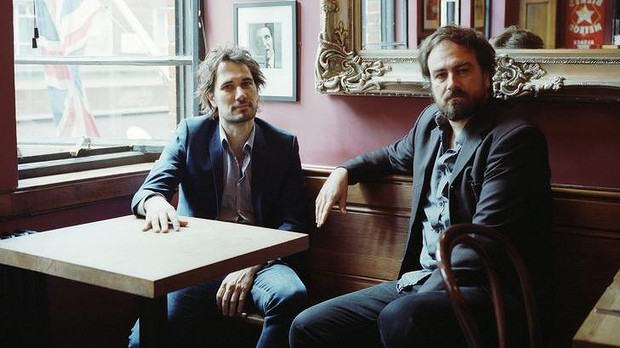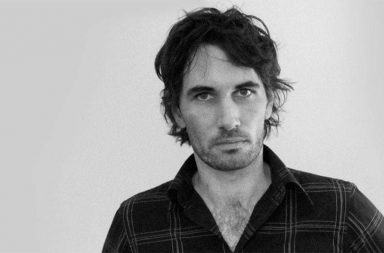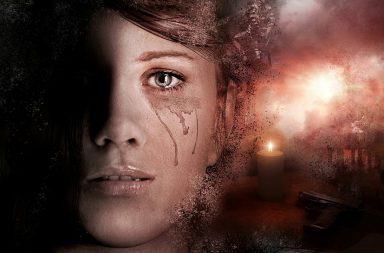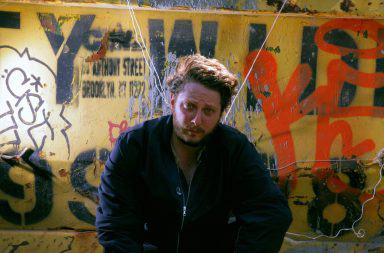Just like fellow Australian Warren Ellis (we talked about him a few weeks ago, catch up here if you haven’t read the article!) Jed Kurzel started off in a band, The Mess Hall, before opting for a more cinematic path. He did not purposefully go in this direction, it’s curiosity that led him there he says. His interest in film music sprung in his teens while watching Italian horror films scored by Ennio Morricone. Yet, he did not envision it as a potential career.
(Source: The Sydney Morning Herald)
When playing in the band, he was already scoring his friends’ short features, so when his brother Justin asked him to score his directorial debut, Snowtown (2011), he accepted without really knowing where this would take him. Kurzel was probably far from imagining that his first film score would harvest loads of trophies for him to display on his mantelpiece, among which the Feature Film Score of the Year at the 2011 Australian Screen Music Awards. Since then, he has composed the music of seven other films —including the terribly brilliant psychological thriller The Babadook—and admits that he has learnt the job gradually. And quite successfully. No later than last Thursday, the composer won the Feature Film Score of the Year again for John Maclean’s Slow West… and there’s no doubt that the soundtrack for Macbeth, his second collaboration with his brother Justin, will follow a similar track.
Jed and Justin Kurzel
(Photo: Kitty Gale)
Some people would rather go skinny dipping in the river Thames than working with people from their family, but that’s not the case with the Kurzel Bros. Jed only sees advantages as you can be blunt and speak your mind with tiptoeing. And even if it ends up in an argument, you know your relationship won’t be tainted. It’s a win-win situation.
Scoring Macbeth was pretty daunting for Jed Kurzel. Being one of Shakespeare’s most beloved and adapted play, both on stage and on screen, it came along with baggage, he admits. The composer did not find the right tone immediately. There was a lot of editing, discarding and corrections. During his master class at the Cork Film Festival, he explained that he wanted a score that sounded ancient and old, rustic, dirty and war-like, just like the imagery of the film. The three witches and their prophecy cast their ominous shadow upon Kurzel’s score, giving it a very dark tone, a sense of dread and uneasiness. For Kurzel, it was important to give the score a timeless quality but using modern elements at the same time in order to parallel the modernity of his brother’s mise-en-scène and Adam Arkapaw’s cinematography. The composer added electronic effects halfway through the film, after the second apparition of the witches, to give the music a “trippy” tone to reflect Macbeth’s delirium.
The distorted, shrill strings remind us all the time that Macbeth and Lady Macbeth are falling into a downward spiral of paranoia-fuelled, murderous madness. The music whirs, buzzes, drones and shudders until it completely overwhelms the viewer. The images add even more texture to the sensorial experience that Macbeth is.
The rock star turned film music composer won’t work on Justin’s adaptation of Assassin’s Creed which will be scored by Jasper Kyd, the video game’s composer. Even if Jed Kurzel is still thinking about reforming his band, it won’t happen in the near future as he’s rumoured to be working on Benedict Andrews’ directorial debut.
Marine Wong Kwok Chuen
